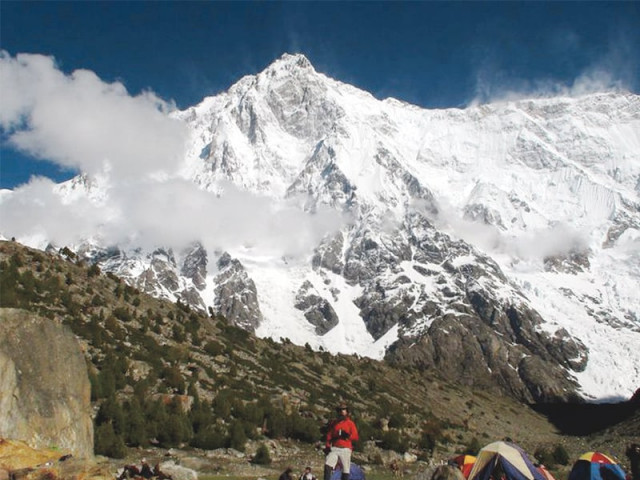Global warming: ‘Melting glaciers can cause massive floods’
PMD official urges for investment in more stations to monitor the rate of melting.

Pakistan is at a greater risk of “massive floods” due to the melting of glaciers up north. The situation needs to be thoroughly assessed, before it gets too late. These are the views of Pakistan Meteorological Department (PMD) Chief Meteorological Officer Dr Ghulam Rasool.
Dr Rasool said automatic monitoring stations have been set up at only two of the 5,320 glaciers in Gilgit-Baltistan. He said at least 10 stations are required to monitor the overall situation of the melting glaciers.
He said that a large investment is required to assess the rate at which the glaciers are melting.
The information can help protect people from flash floods, besides ensuring efficient management of the country’s water resources, he added.
Dr Rasool said the Kathmandu-based International Centre for Integrated Mountain Development assisted PMD in installing two monitoring stations at the Passu glacier in the northern Hunza Valley, at 4,500 and 3,200 metres above the sea level. PMD officials visit these stations twice a year to assess the glacier’s melting rate.
According to the data obtained from the stations, the Passu glacier retreated by 25 meters in a year, said Dr Rasool.
He said that the quantity of water flow from the Passu glacier is less than the melting ratio, which suggests that a sufficient quantity of water is being stored in hidden lakes underneath the glacier. He said that “the situation could turn dangerous as a sudden outburst of the hidden lakes could cause massive floods”.
He suggested that Pakistan should build more dams for storage of water amid the fast melting of glaciers. He added that the melting rate of transparent glaciers is higher than the ones covered in debris.
Dur Nawab, a Yasin Valley local, told The Express Tribune that he has witnessed the glaciers retreat “almost six to seven kilometres” over the past 25 years, adding that the melting rate has increase in the last two decades.
Former PMD chief Qamaruz Zaman Chaudhry said that emissions of greenhouse gasses has badly impacted the global climate and is resulting in fast melting of the glaciers. Being a developing country, Pakistan’s contribution in the production of greenhouse gases is not significant; however, “it is one of the most affected”. He added that while
Pakistan cannot do anything alone to stop global warming, it can evolve effective mechanisms for water conservation.
Experts believe that the fast melting of glaciers combined with the heavy monsoon rains caused last year’s massive floods that affected around 20 million people and destroyed 1.6 million homes.
The floods inundated up to one-fifth of the country over several weeks as the floodwater swept down Indus River.
Published in The Express Tribune, October 24th, 2011.


1724912122-0/Untitled-design-(1)1724912122-0-208x130.webp)
















COMMENTS
Comments are moderated and generally will be posted if they are on-topic and not abusive.
For more information, please see our Comments FAQ